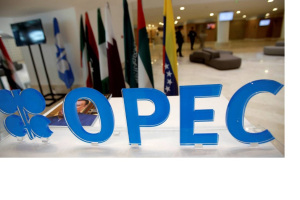With OPEC deciding to cut back on oil production, it may be able to start depleting the global oil surplus stock and start jacking up oil prices by early next year in a bid to rescue the oil industry from rock-bottom oil prices.
This, after the Organization of Petroleum Exporting Countries (OPEC) decided to implement oil production cuts for this year allow the global price of crude oil to increase to more than $60 per barrel and allow the industry to get back on its feet. This is OPEC's first production cut deal in eight years.
Mohammad Barkindo, secretary general for OPEC told Bloomberg Thursday that the move would bring stock inventories lower and back to normal levels within nine months. Eulogio del Pino, Oil Minister for Venezuela, also agrees that this deal from OPEC could help shoot up oil prices by as much as $70 per barrel. OPEC's headquarters is in Vienna, Austria.
This deal is expected to put demand back on oil as the global oil supply gets back to regulated levels and give all oil-producers a good playing field in the oil trading market.
As news of the OPEC production cut began to spread, the market is seeing high hopes with bringing back the prices of oil to normal levels. The closing of the latest trading day showed that oil prices have started to pick up by more than $2 per barrel of Brent crude.
Founded back in 1960 by some of the world's biggest oil producers -Venezuela, Iran, Iraq, Saudi Arabia and Kuwait, it envisioned to create policies and stabilize oil prices for the mutual benefit of consumers and producers alike. OPEC accounted for 73% of the world's oil reserves and 43% of the world's oil production.
As part of the OPEC deal, it has convinced Russia - another major global oil producer - to also implement production cuts to help spur oil prices up. This, according to analysts, is due to an urgent need to increase the prices of crude oil in the face of an ongoing surplus of inventory which could not be balanced with a surprisingly steady demand from consumers.
Oil prices started to drop to phenomenal levels in the world market due to the weak demand of oil in many countries due to rapid yet insipid economic growth and the United States also seeing a surge in oil production back in 2015.
As a result, the OPEC also refused to cut production of oil among its members, thus, pumping surplus inventories of crude oil in the market that resulted to the drop in oil prices.

















